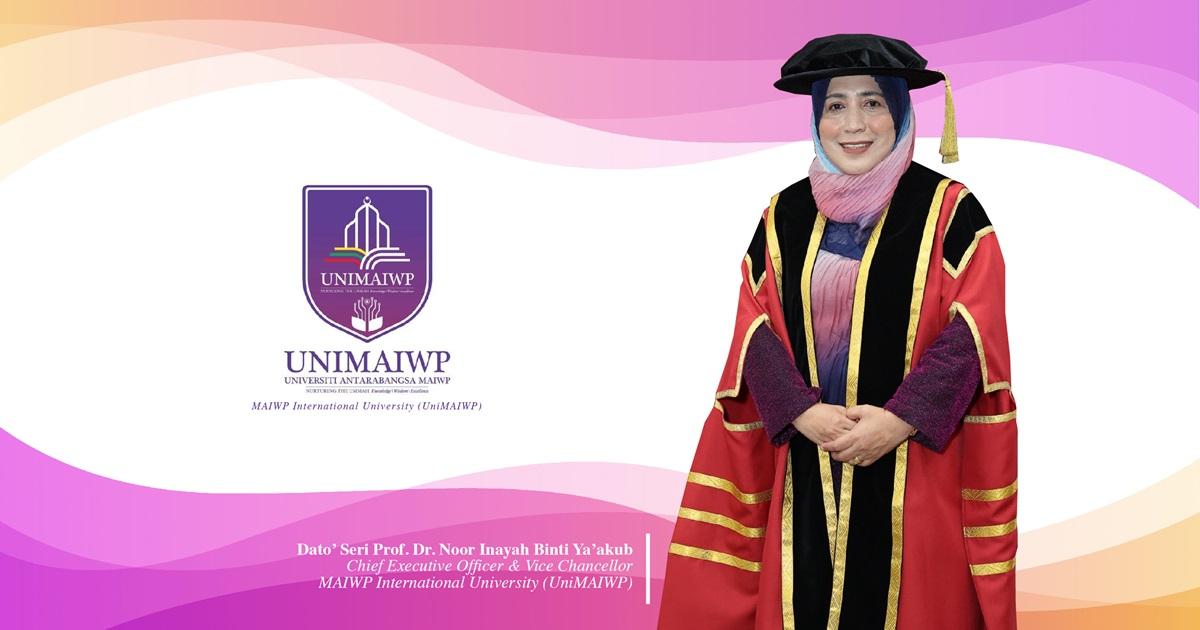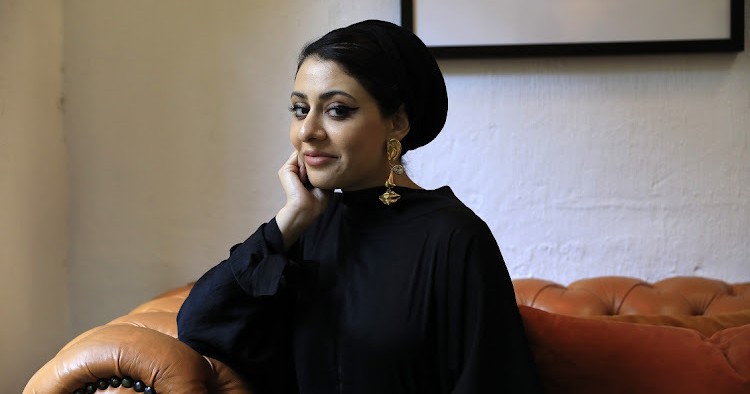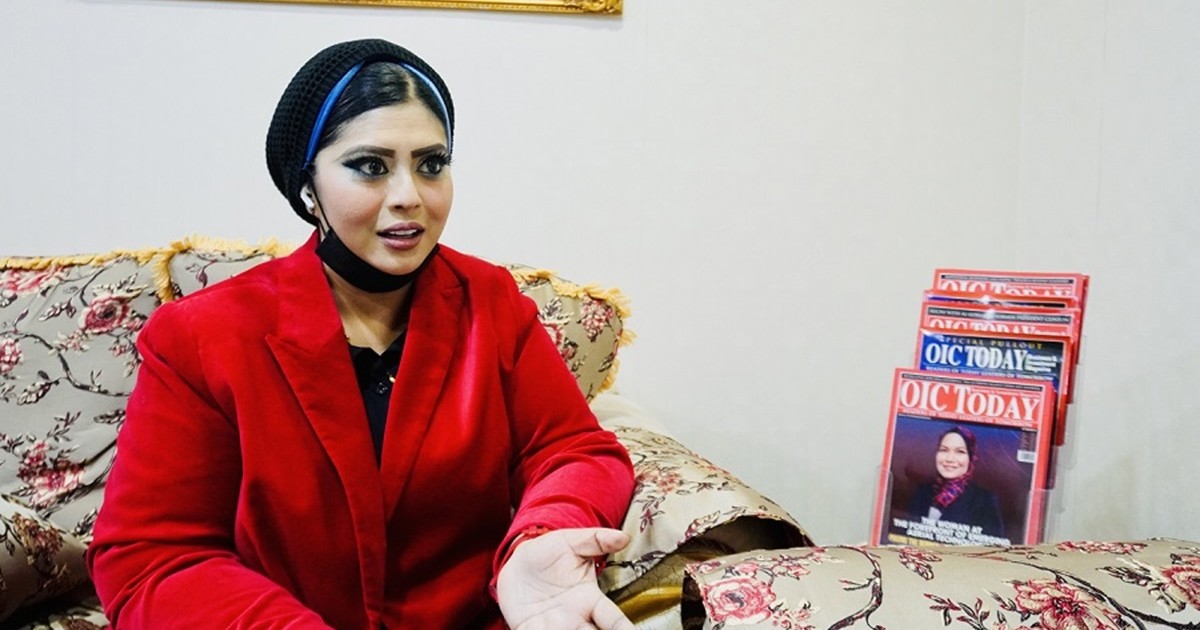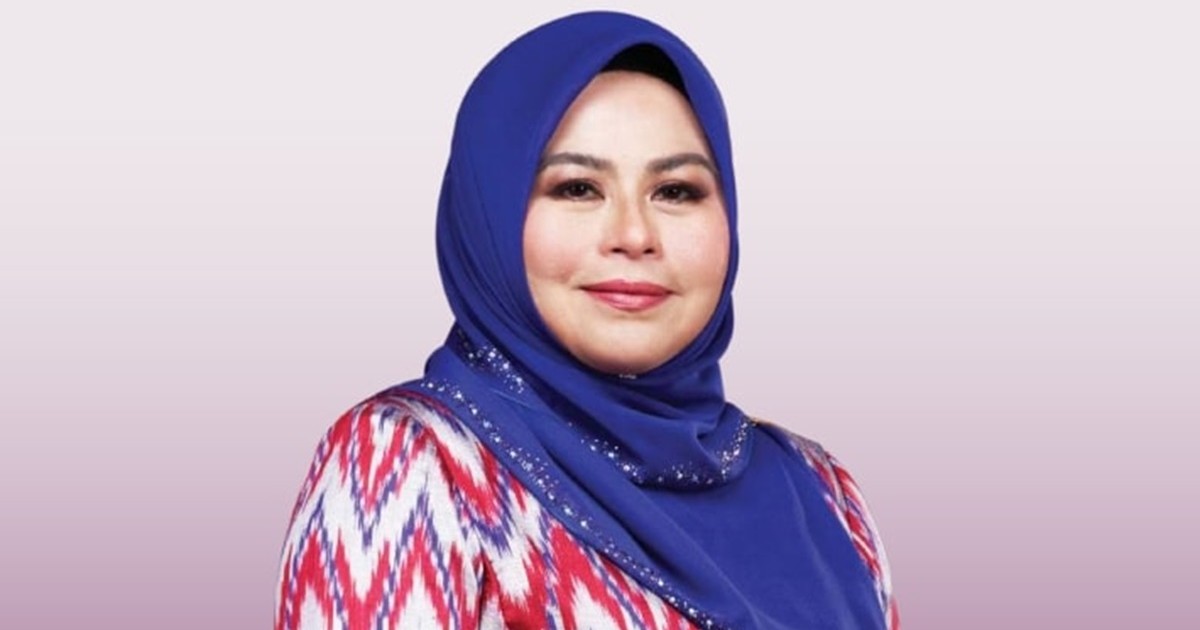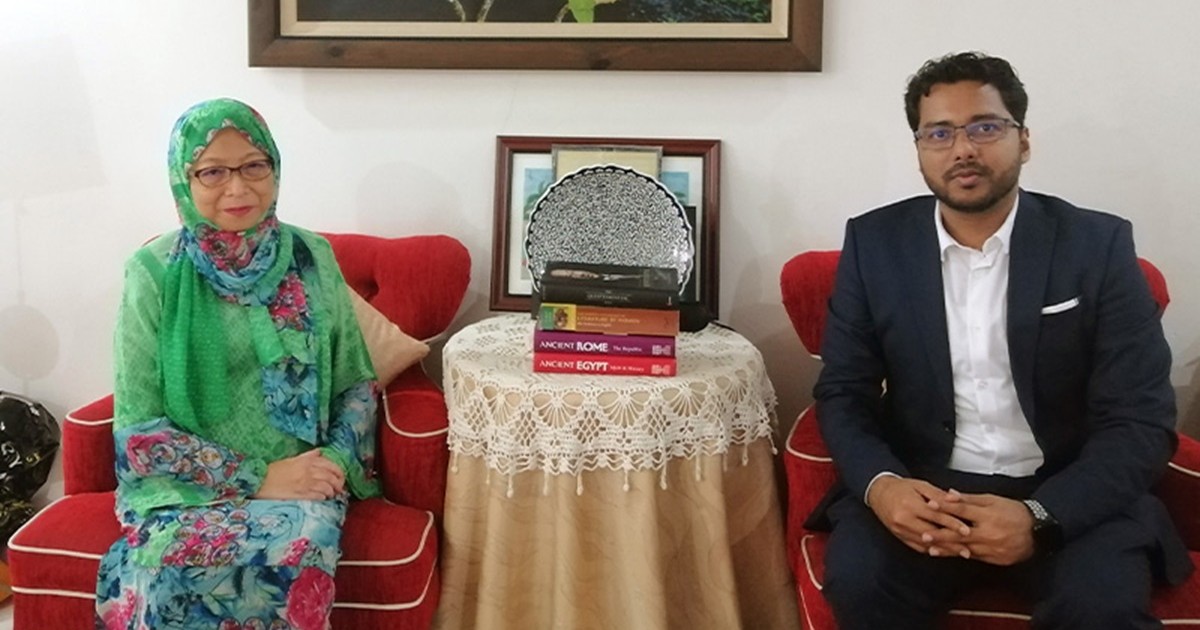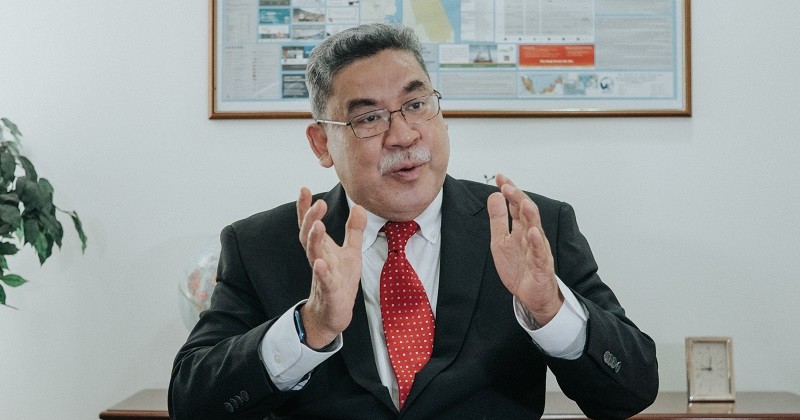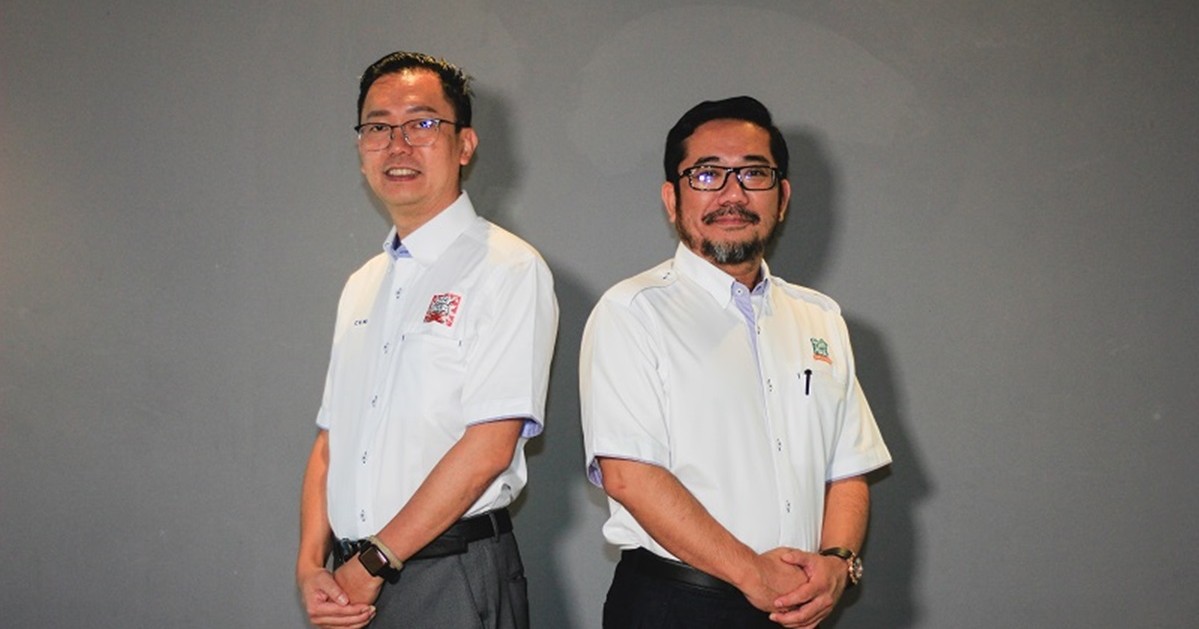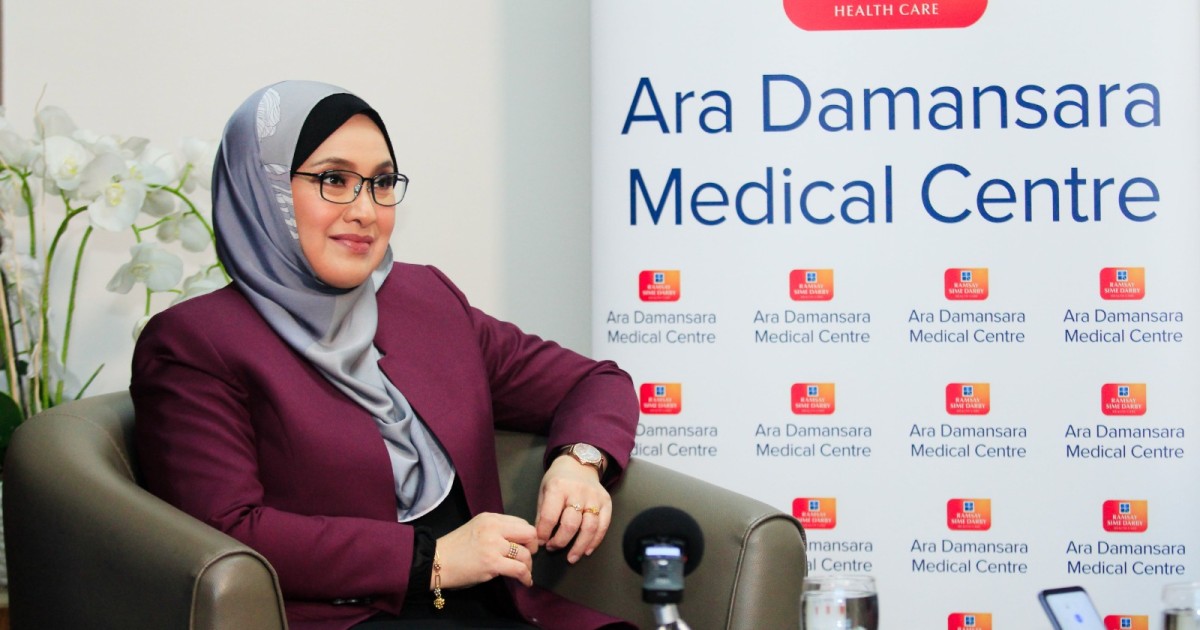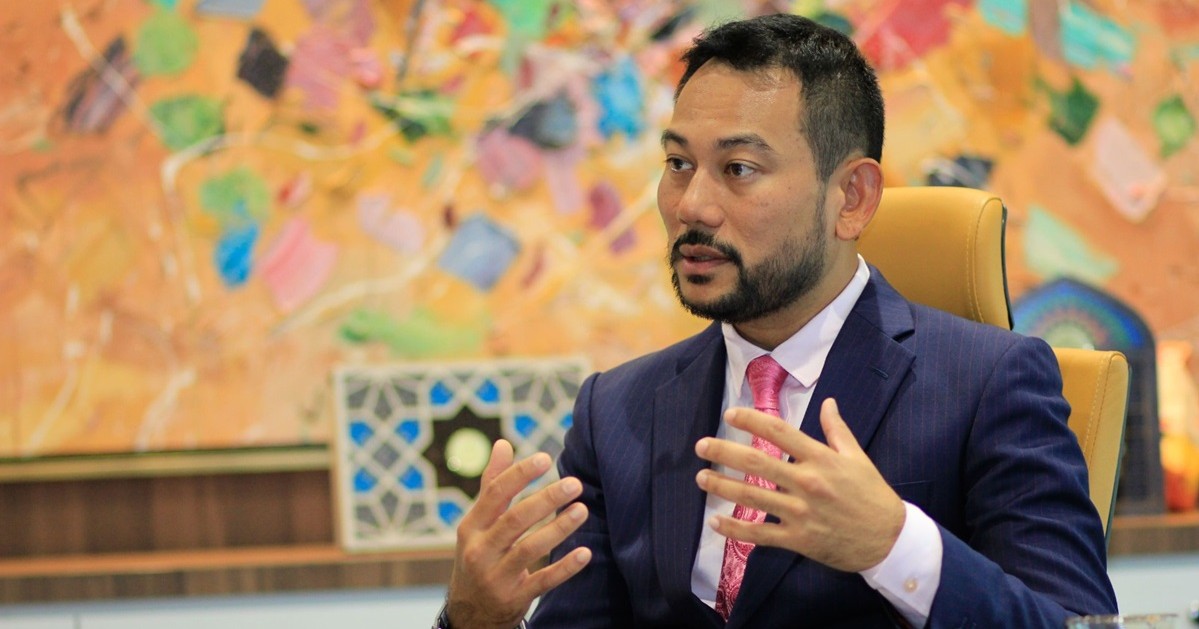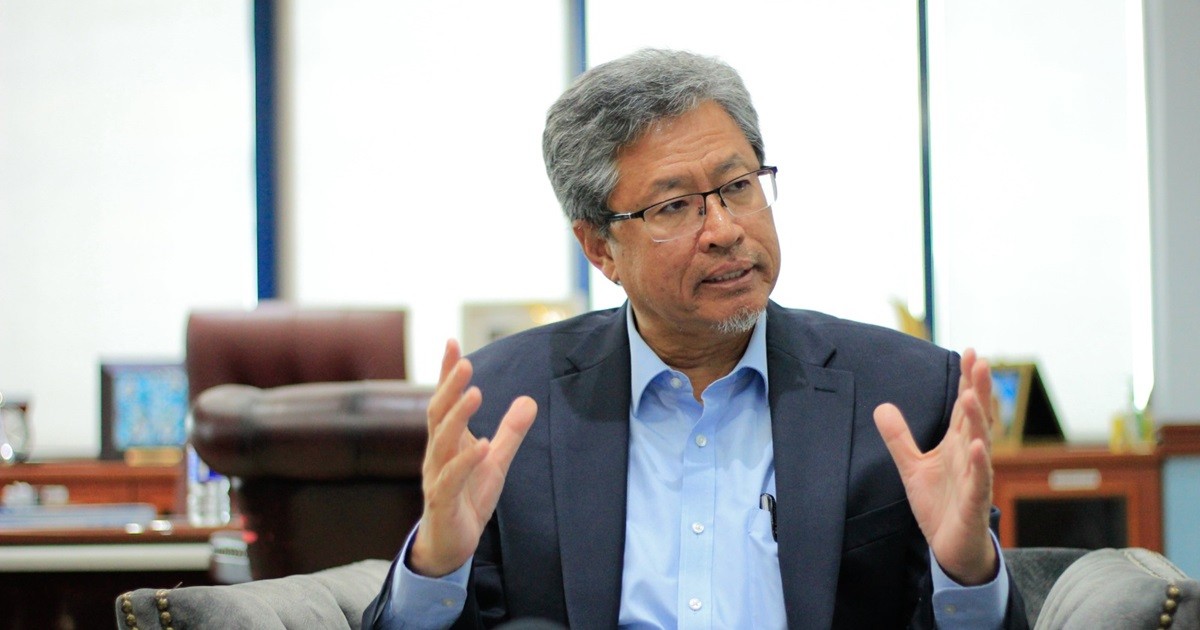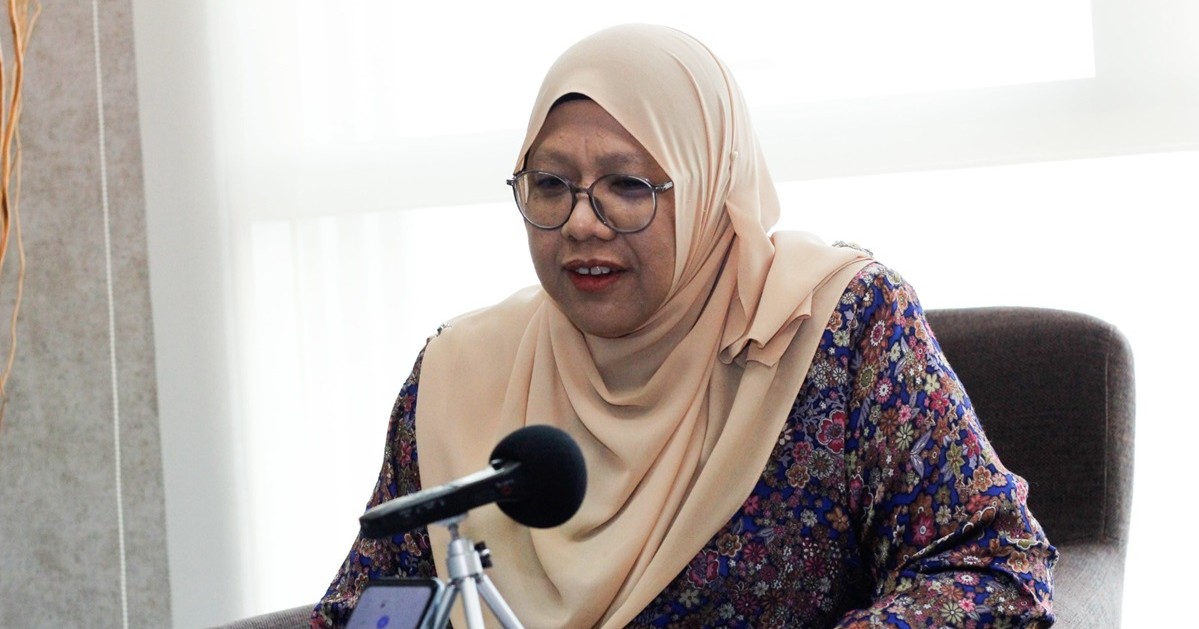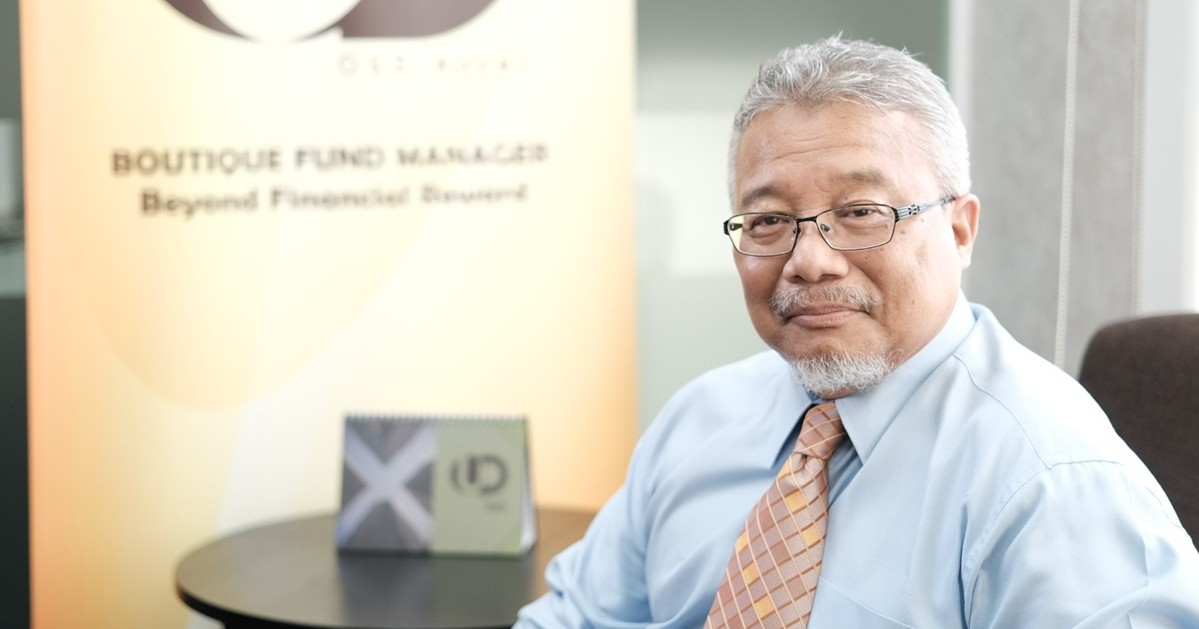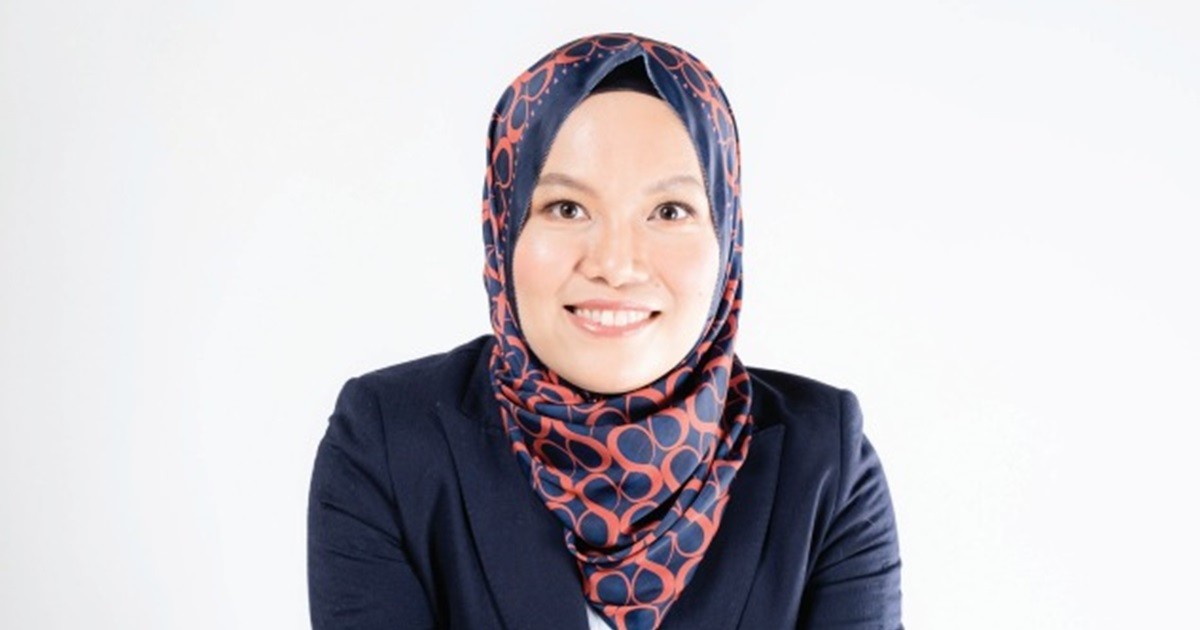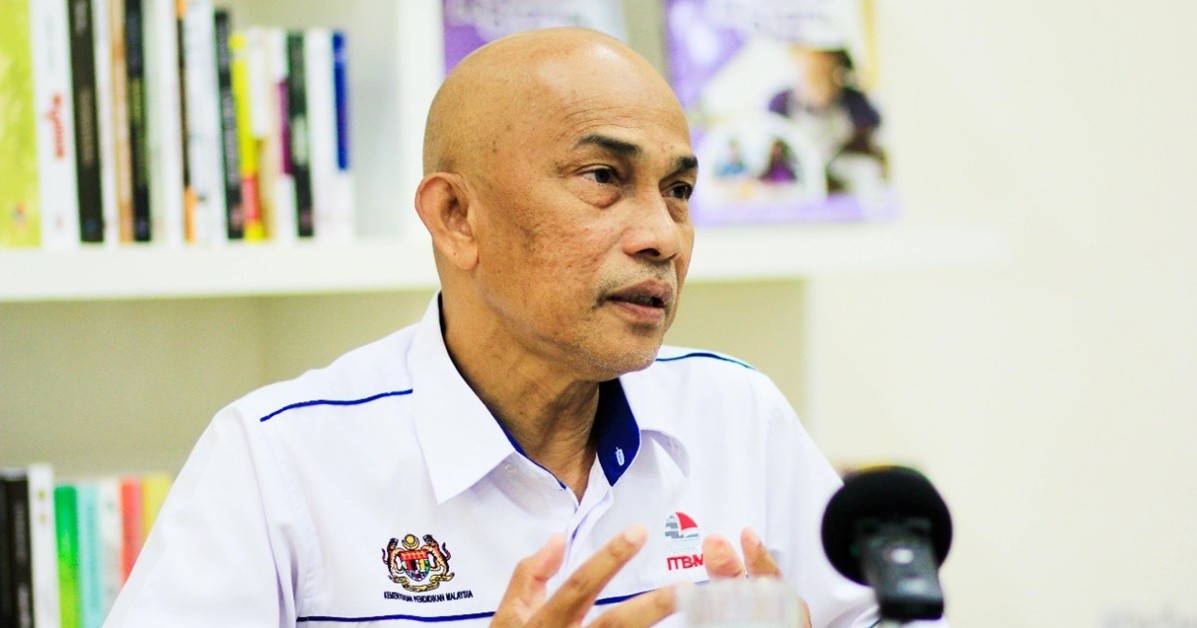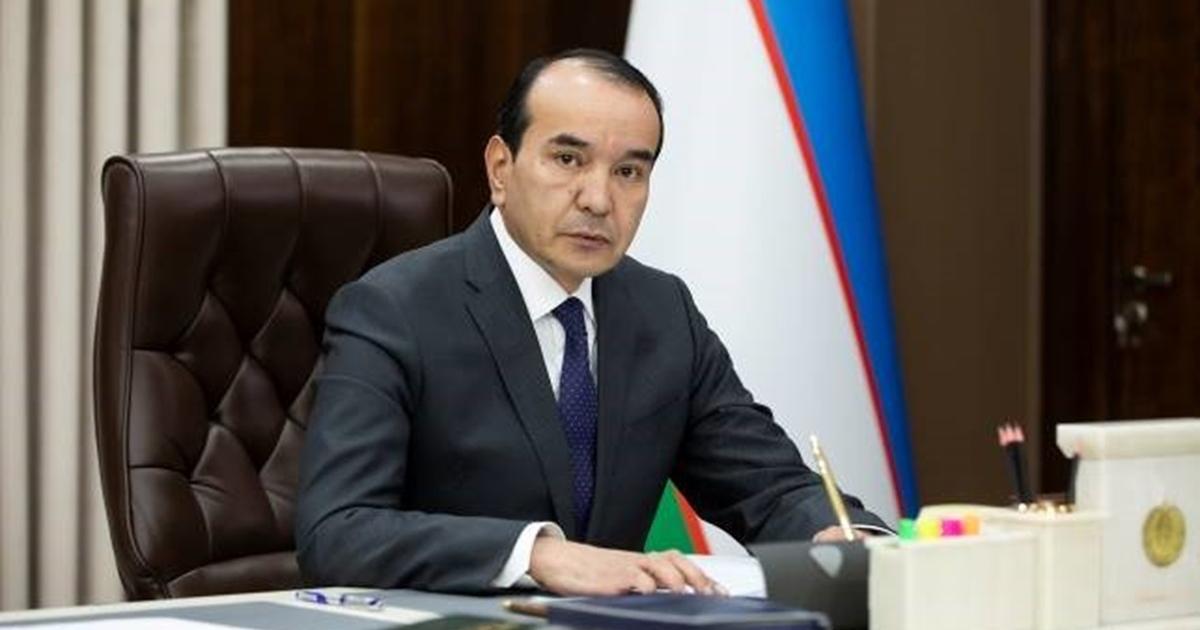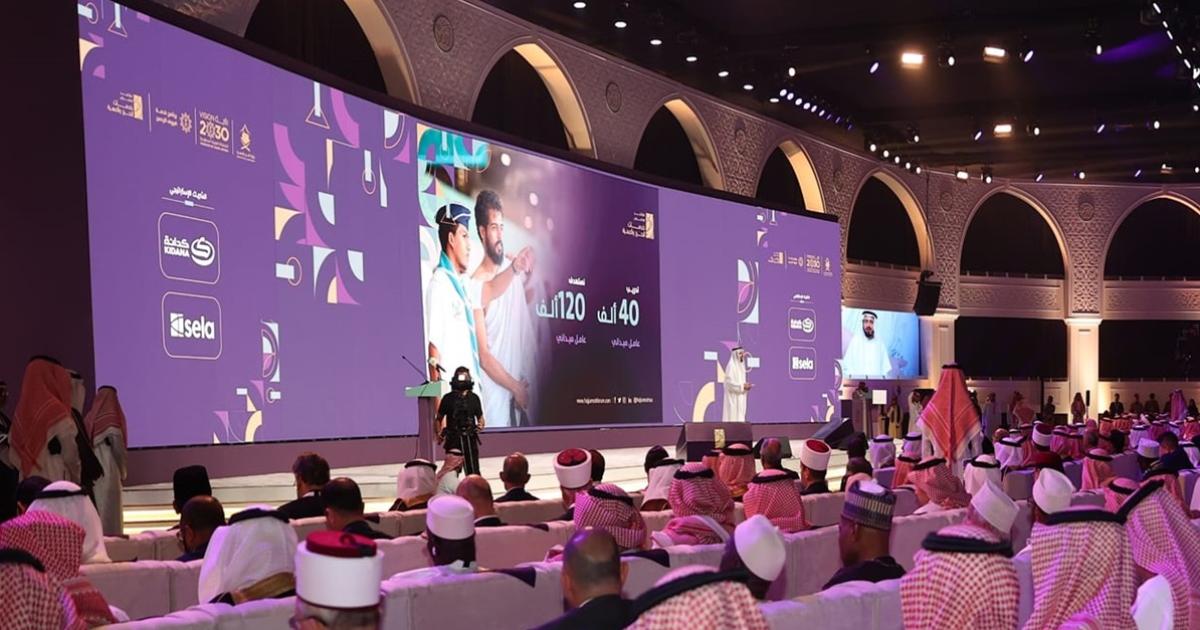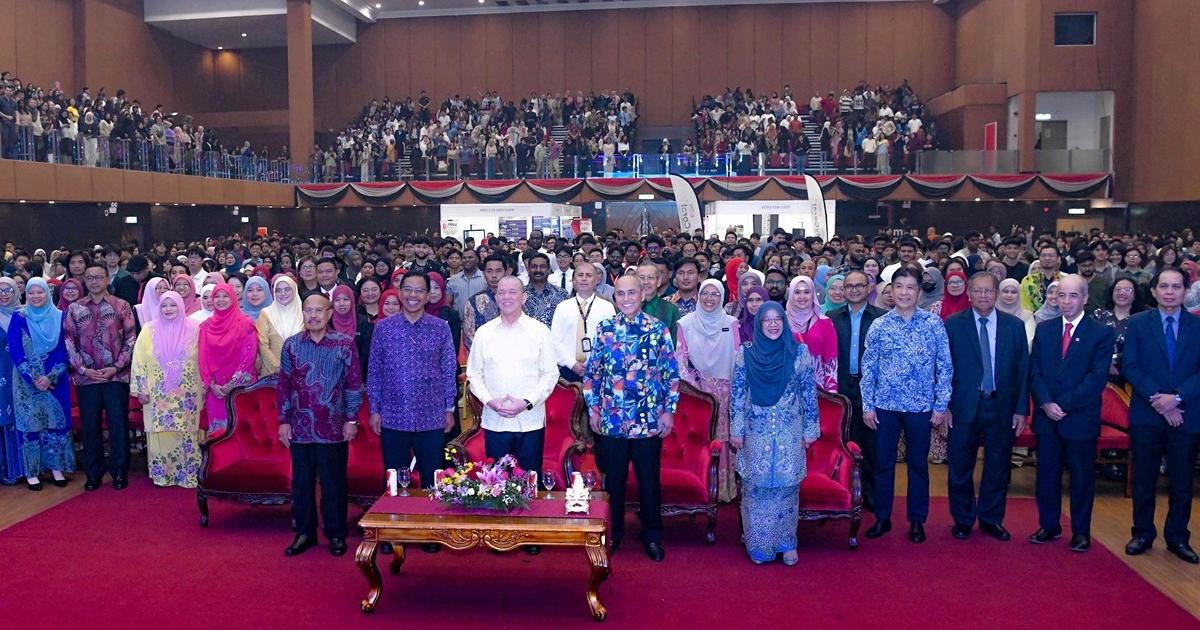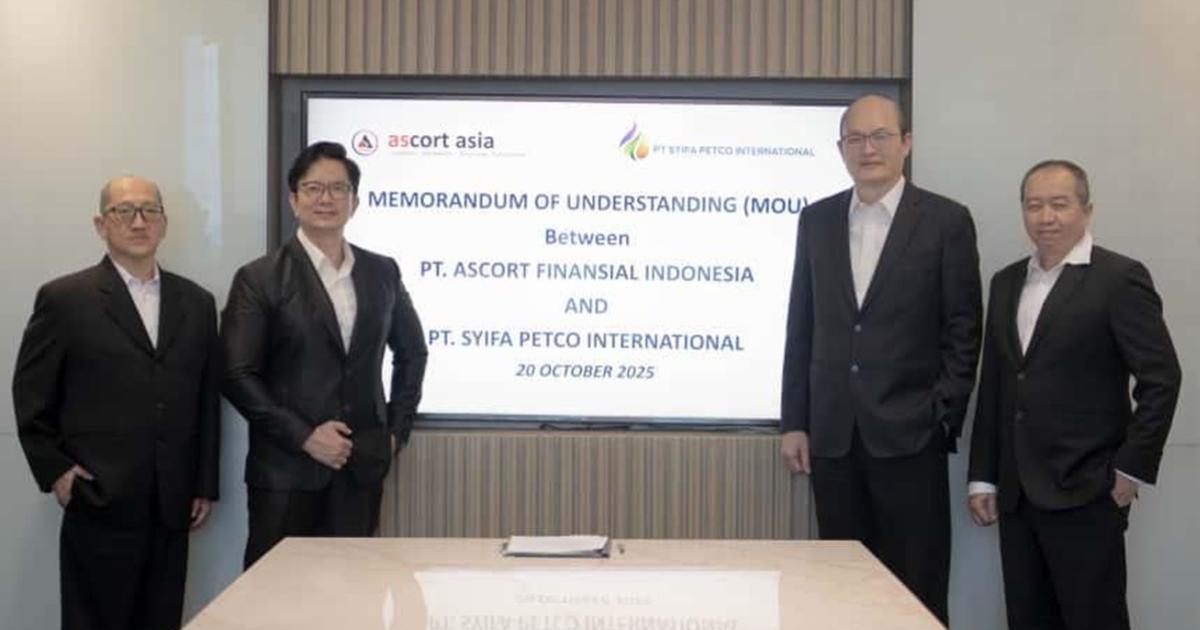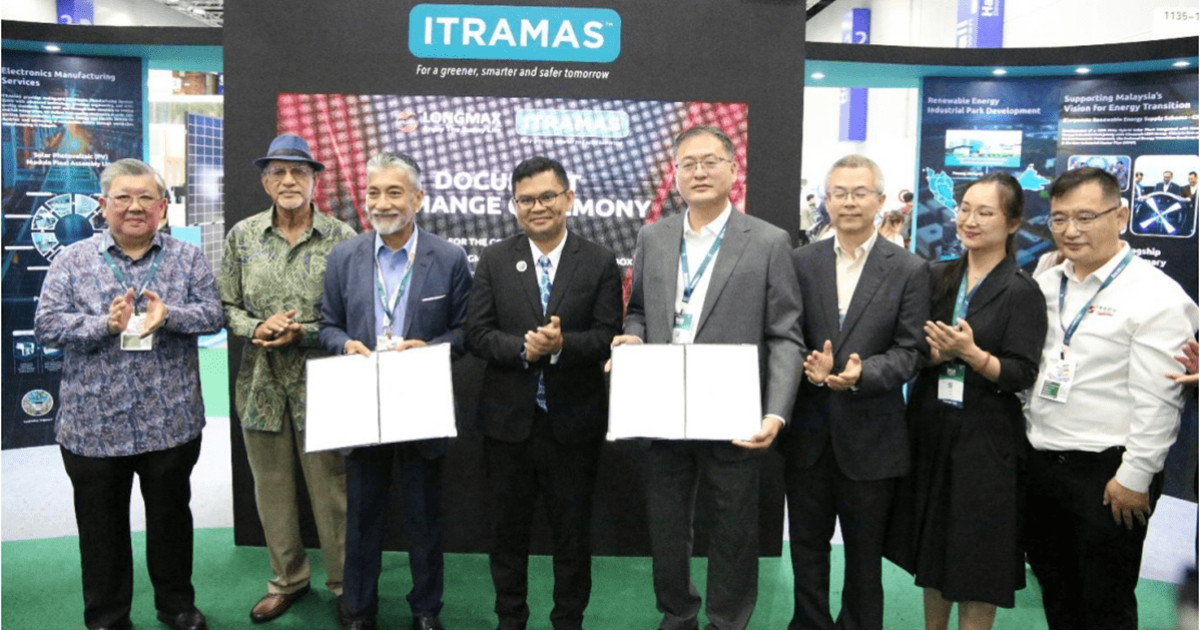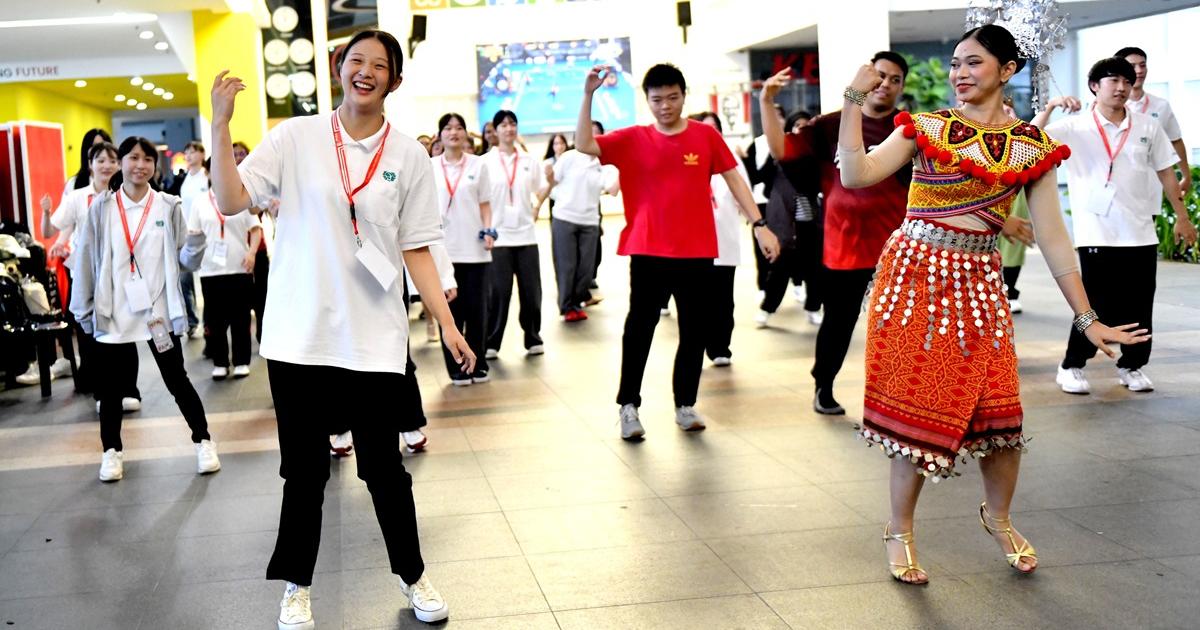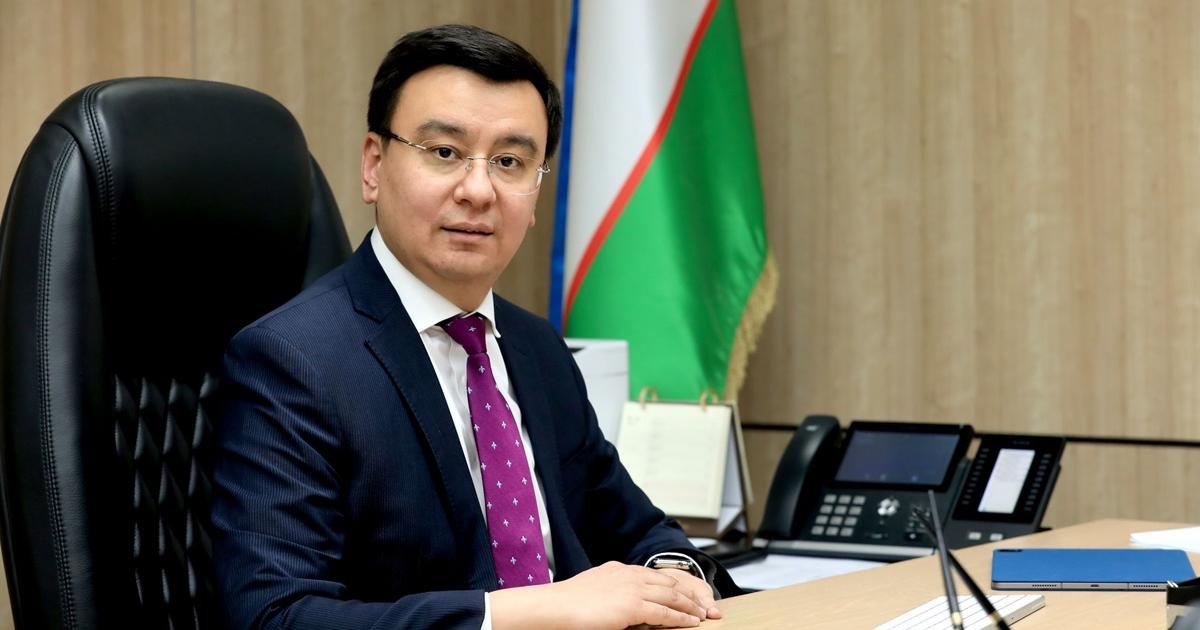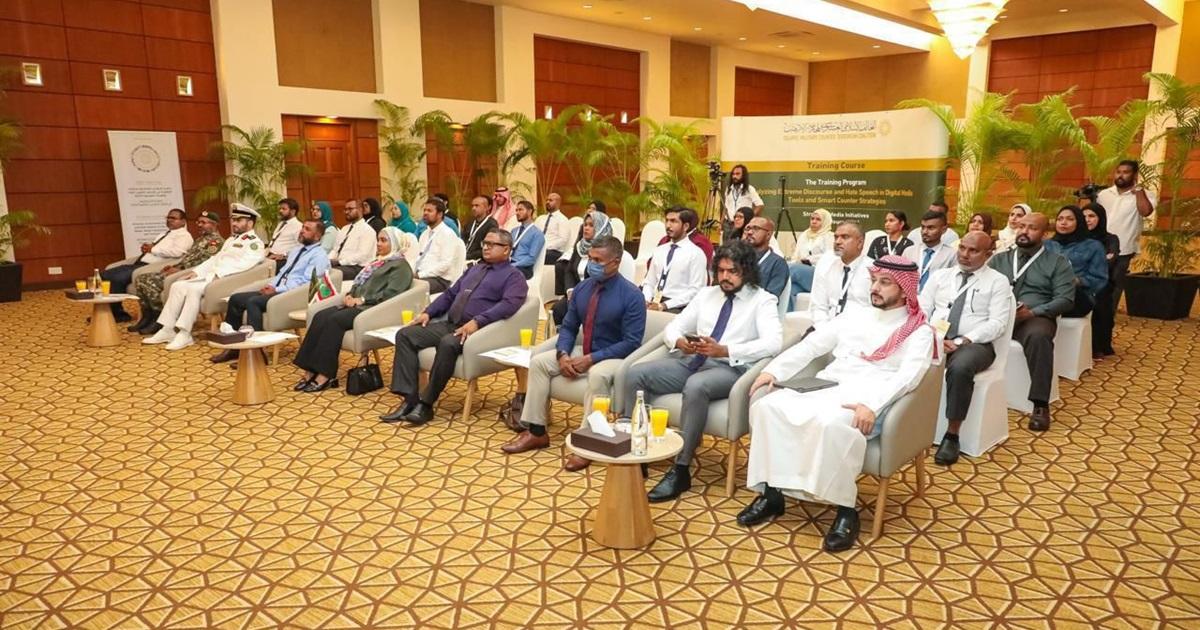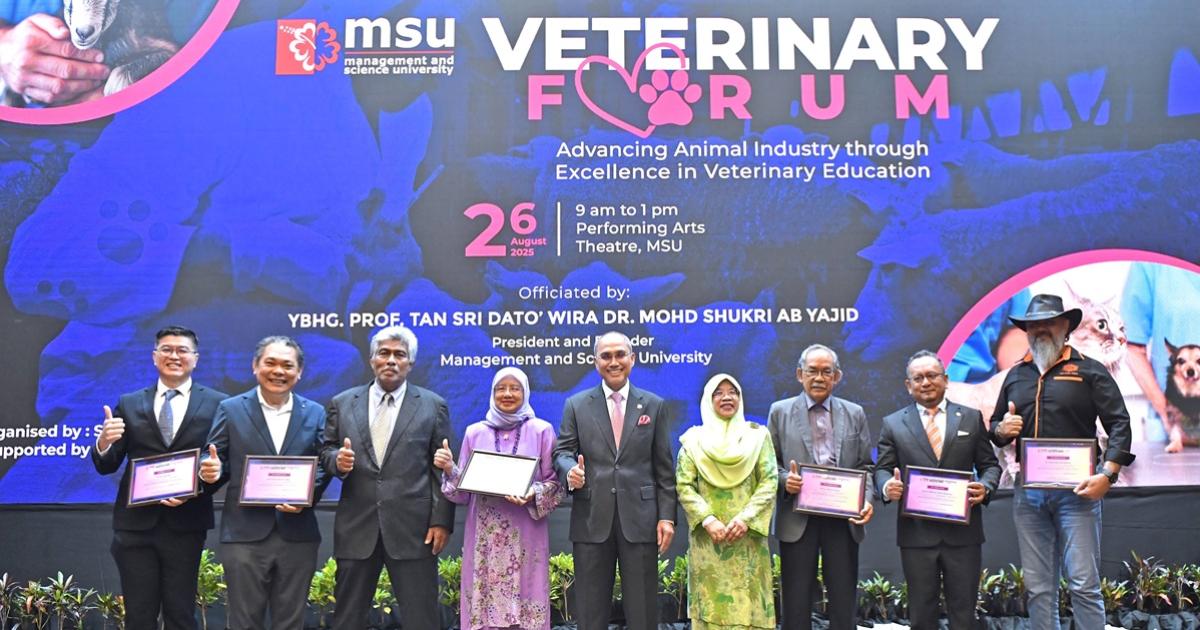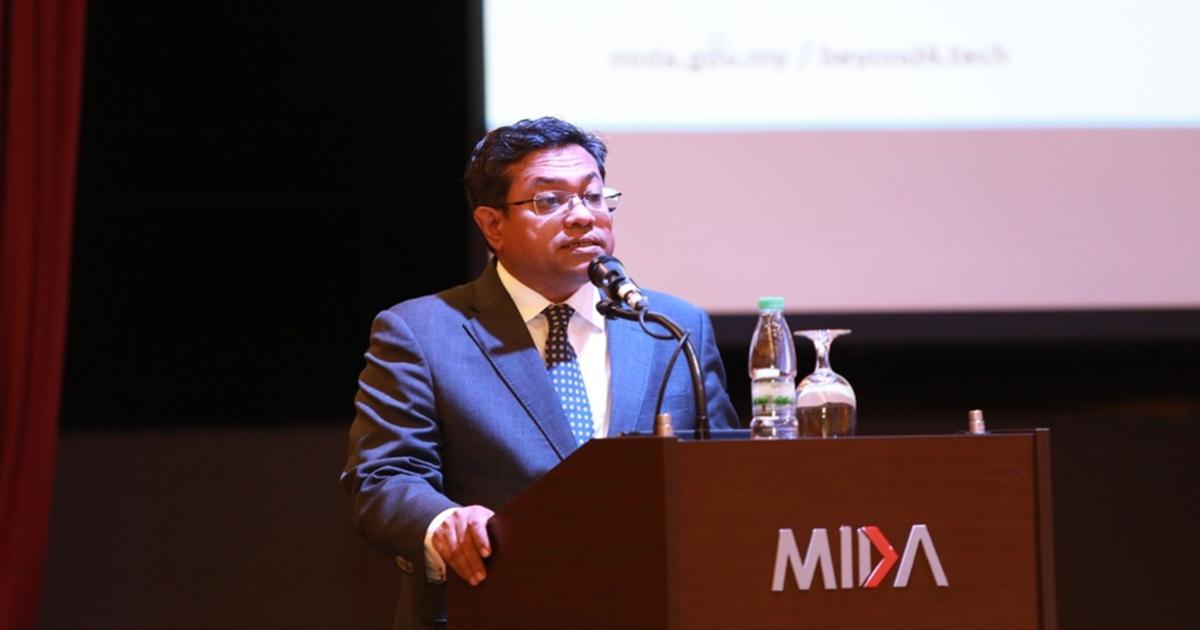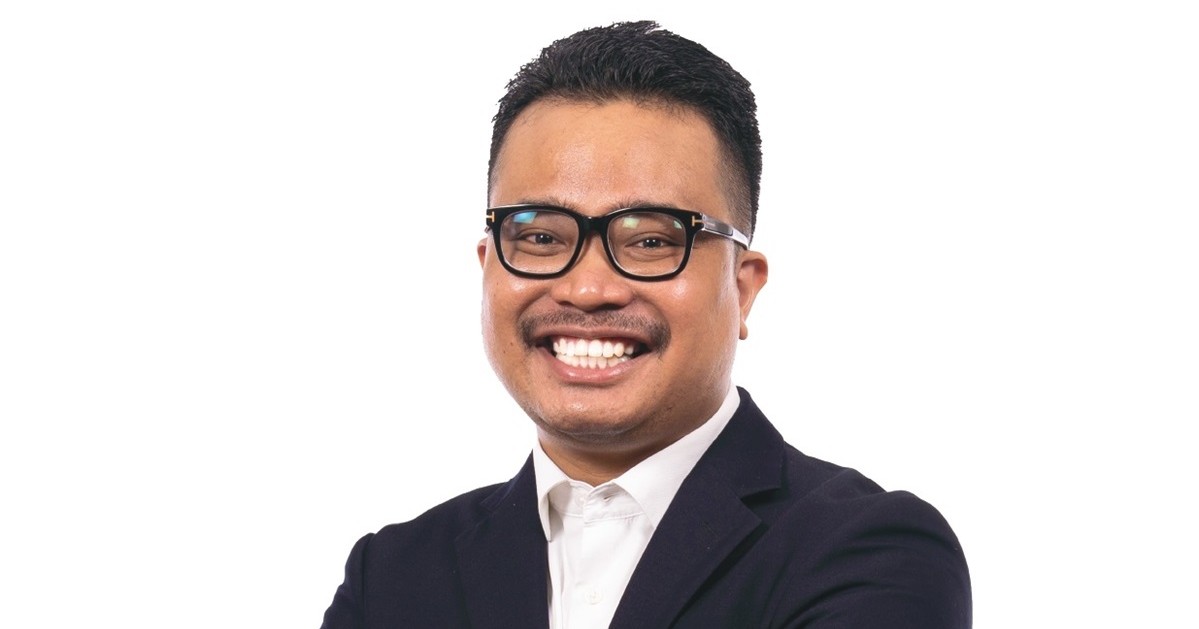
Mr Muhammad Afiq Bin Redzuan: Thank you for your kind words. I just want to clarify one thing; I am also referred to as the youngest CEO in Malaysia. But it is not entirely true. There are other CEOs who are holding the positions but they are younger than me. However, as regards my achievements and career accomplishments, I always feel that a man needs to achieve success before reaching the age of 50. It is not solely about being rich or wealthy, but it is more about the journey for one’s own self and for his/her community. So, whatever you can achieve in life, it is not entirely for yourself, it is not about feeding you with success after success, it is truly about giving back to the community you belong. The way I would like to see it is that, whatever I may achieve in my life, I am supposed to give it back to society. For example, when I was in Lazada, my role at the time was that I was creating a new job, collaborating with the Central Bank of Malaysia and other important parties to engage more people with the company. The same I am trying to do here with METEOR Group. For the last 7-8 years, some of the sister concerns of this Group have become sleeping giants. I want to revive the former glory of all of METEOR Groups’ companies. During the tenure of the 2nd Vice-Chancellor of OUM, Tan Sri Anuwar Ali, he made the company very great. After his time, the dominance of the Group fades, and I am confident that I will work hard to regain the glory by revitalizing the sleeping giants, by restarting and resetting the company with new spirit.
As we have seen, your academic background is business studies, and you have served in giant companies like Lazada, Air Asia and Petronas. Clearly, the previous companies you worked with are different from METEOR Group in terms of mission and vision. This group’s primary focus is on the education sector. How challenging is this new role for you, and what difference are you experiencing here compared to your previous work experiences?
Mr Muhammad Afiq Bin Redzuan: From my point of view, METEOR Group is not entirely focused on education alone. The company/group concentrates on other areas as well, this is why it is also referred to as a holding company. So, what I have done before with Lazada, Air Asia and Petronas, I would like to use those experiences here at METEOR Group to make sure that all the subsidiaries of this Group are actively working perfectly in accordance with the company policy. Previously, yes, we had more than 5-6 companies that were doing extraordinarily great during the time of Tan Sri Anuwar Ali. I desire to carry on his legacy and revive METEOR’s former glory. We used to be very famous in the Gulf countries like Saudi Arabia, but we have lost that moment. As a CEO, I will use my full potential and experiences to go back to Gulf countries and make the group popular again internationally.
One of the most fascinating things we have learned about METEOR Group is that it works in areas such as learning, research and consultancy. Can you share the brief history of the foundation of this Group and why is it important for Malaysia’s national growth?
Mr Muhammad Afiq Bin Redzuan: If we go back to the foundation of the Group, we need to acknowledge the contribution and vision of former Malaysian Prime Minister Tun Dr. Mahathir bin Mohamad. He had a big vision associated with the Group and all the public universities, also he had the desire to implement proper Open and Distance Learning (ODL). So, during his tenure, the administration called 11 public universities to form a consortium and since then the Group was created. Therefore, the founding principles of the Group was not only to contribute in education sector but also to help Malaysia as a country to advance in technology and other valuable industrial fields. And back in 2000, METEOR Group created Open University Malaysia (OUM). If you talk about our primary ambition. It was mainly about making all the Malaysian public universities to be internationalized, especially in the sector of online learning or ODL. At the same time, the Group was also supposed to contribute to the whole ecosystem of the economy itself, by utilizing the maximum capability of technology in the education sector. This is why during the time of 2001-2006, we were quite famous, as I mentioned earlier, in the Gulf countries, especially in Saudi Arabia.
As you know, Malaysia, by extension the world, is gradually recovering from the pandemic. Every thriving institution has a story of its survival during the dark times. How has this Group succeeded in coping with the pandemic time? And what are the steps the METEOR Group is taking in order to bring more success in the postpandemic period?
Mr Muhammad Afiq Bin Redzuan: As per as the pandemic and postpandemic situation, it is considered to be the biggest factor in the entire economy right now. As we have recovered from the pandemic, everyone’s focus is now what will happen during the postpandemic time. Let’s start with the OUM itself, I strongly believe it has the full potential to be the truly premier and the most prominent provider of ODL, leading other ODL institutions in the region. So, post-pandemic is the best time for us to fully incorporate Online and Distance Learning, which has been the essence and principle of this university since its inception. Students do not need to come here in Malaysia to obtain a world-recognized degree. They can smoothly do it through our fantastic online infrastructure surrounding ODL. Our ambition is to go global. Students can attend our academic programmes from any part of the world including Eastern Europe, Gulf Countries, China, Central Asia, from Island nations like Australia; and so on.
The shareholders of the Group consist of 11 reputed Malaysian universities. How is this Group serving these universities that are, the least to say, very important institution in the nation building process? And what do you plan to do personally to facilitate more efficient services to these universities?
Mr Muhammad Afiq Bin Redzuan: We have spoken about it with the board of directors recently also with the Vice-Chancellor of OUM. I have strongly suggested that we should start to complement each other. As you know, certain university is expert in a certain area, or so to speak, in a certain subject. Off all these reputed 11 public universities you have just mentioned, each university has a niche area, each is expert in certain area and academic programme. For an instance, University Malaya’s law department is excellent. UITM focuses more on the Business Studies and IT sectors. And other universities have their own unique potential in certain areas. What we can do is that we can combine the best programmes from all these 11 public universities, and offer the selected best of the best academic programmes from a single platform. That platform, I believe, can be led by OUM. Secondly, if any of the public universities want to incorporate fully online programmes, OUM can share its online resources to jointly work with that particular university that needs help in upgrading and offering online-based courses. This is how we can complement each other, in other words, we can help each other to grow and flourish as educational institutions.
METEOR Group has its international partners in several countries including Saudi Arabia, Japan, Bangladesh and China. Why are these international partners important for the Group, and how are you strengthening international partnerships?
Mr Muhammad Afiq Bin Redzuan: If I share my opinion on this, as you can see, even in the developed countrieseveryone does not have the opportunity to pursue higher education. For instance, USA is one of the most advanced countries in the world. Yet, many of their citizens are not able to obtain university degrees, and I want to also add that, the course fee is also expensive in those countries. This is why I am thinking of utilizing this opportunity to offer our courses to first world countries as well. So, those who cannot afford a degree in the USA can apply to OUM and get their desired degree through online learning system. So, in my opinion this would be a great market and a great opportunity for OUM. Previously, the mindset was different, we did not have the mental strength to go into first world countries and grab their education sector. But now, with advanced ODL technology that we have at OUM, we can do it. For example, we can offer our courses to Eastern Europe and central Europe. As we all know, there are conflicts and border issues ignited by the recent war between Russia and Ukraine. We can easily get students from those countries who perhaps cannot study in their universities due to problems. I also believe Malaysia is now one of the leading countries in the world in providing quality education. But we need to expand our vision. Having said all these, I believe in internationalization and I am hopeful that we can grab the international market through expanding our international collaboration and partnership. Indeed, it is very important for the growth of OUM, and for the development of the Group.
Since its creation as a Group in 1998, METEOR has been playing an important role in realizing Malaysia’s vision of achieving the status of an industrialized nation by 2020. How far has the Group achieved, and what needs to be done in the future?
Mr Muhammad Afiq Bin Redzuan: Honestly speaking, Malaysia still needs to work on industrial development to be recognized globally as an Industrial nation. We cannot simply depend on Foreign Direct Investment (FDI), rather we need to create our own jobs and industries like Thailand and Indonesia. As a Group, we cannot do much to accelerate Malaysia’s overall growth, it must be done with a more comprehensive approach. As a Group, what we are going to do is that, we will collaborate more with our external parties. There is a need to engage in more international partnership and collaboration to drive the Group’s growth and as a consequence, Malaysiaas a country will also be benefitted. Let’s say if we can get students from first world countries, there are two positive outcomes. The students from the USA, for example, can get a world-recognized degree with just 20,000 Malaysian ringgits, which in their own currency is a much less amount. Also, they do not have to spend a lot of money in their own countries to get university degrees. Moreover, they do not need to travel all the way from their country to Malaysia. Now, I want to get back to your original question. When lots of students attend our programmes, naturally, Malaysian economy will be boosted since foreign currencies will pour into our economy. So, I believe this Group is an important player in the entire ecosystem of the economy, and we can do much better in the coming years.
Other than Open University Malaysia, you have International Open College, Institute of Professional Development and Meteor Technology & Consultancy. Can you please inform us about these institutions and what the Group is achieving in the education sector with these institutions?
Mr Muhammad Afiq Bin Redzuan: International Open College ceased to exist long before I was appointed as CEO. However, we have plans to reopen college. Recently, we are collaborating with the New Zealand government to establish a college. The Institute of Professional Development (IPD) was also once very popular in Malaysia. I aim at reviving this institute to its past glory. We are trying to be a centre that is not only focused on the corporate sector but also it is determined to be a credible institute for all sectors. The IPD also aims at becoming one of the recognized chartered institutes that can certify other institutes. The Meteor Technology & Consultancy is actively functioning. As of now, we already have a contract with Asian Institute of Chartered Bankers (AICB), which is a part of the Bank Negara Malaysia (Central Bank).
Do you think Malaysia as a country is now ready for post-pandemic times for opening full-scale business operations? And how can METEOR Group get back to normalcy?
Mr Muhammad Afiq Bin Redzuan: As per as the Group is concerned, the expertise is there, and all 800 current staff are fully ready to move ahead in the post-pandemic time. As I mentioned before, these 800 people are highly qualified, we need to reorient the Group’s activities and follow its pastsuccessful legacy. Then only, these qualified people will be able to give their full potential. And this is what I am trying to do here. I am ready to guide them to revitalize the sleeping giants of our Group. Especially, in the postpandemic time, we are repurposing many of the company’s activities as fast as we can in order to thrive more successfully in this time. So, yes, by the will of God, we are ready for the post-pandemic time.
Since the creation of the Group, the main focus has been on the education sector. Can you let us know why the Group is so education-oriented, and what do you want to achieve as an end result?
Mr Muhammad Afiq Bin Redzuan: As you know, every company has its own area of expertise and concentration. Like Petronas, for example, they are tremendously expert in drilling although they have many other businesses. Same goes for Lazada, which is an expert in online selling. So, our expertise is education, this is why we are more focused on the education sector, especially higher education. We are primarily doing it through Open University Malaysia (OUM). We have designed our academic programmes – diploma, undergraduate, master’s and PhD – in such a way that they remain relevant to the industry and also suitable for job markets. For example, one of the most significant programmes of OUM is MBA. We are incorporating up-to-date course materials for this course so that the graduates can gather multiple expertise when they go out to orient themselves into the industry. However, overall, we need to move forward by getting our current academic programmes recognized by international bodies. So, we are not just pleased with the recognition by local bodies, we want to be recognized by global and international institutions in the USA and EU, for example.
As a Group managed by professionals from the industry and academic sectors, could you please explain how you personally manage between these two entirely different group people? Is it an asset for the Group to have these two groups of people working together or is it a challenge to face?
Mr Muhammad Afiq Bin Redzuan: Personally, I think it is an asset to have these two sets of people working together. If you observe international educational organizations and universities, the lecturers do not only lecture inside the class, rather they have links with outside world, outside industries. A lot of professors are not only famous inside the university but also, they are famous in the outside. They are writing in journals; however, they are also writing in the newspaper. This is what I expect from OUM academics and PhD students. I want them to start writing for newspapers, engage with community and society, and ultimately with the wider socio-economic and political spheres of the country. There is a need to venture out from the fixed position and flourish. The academics, apart from their teaching career, can contributein the industry by becoming advisors, consultants, writers and so on. By doing so, they can form partnership with the industry, and contribute to the university even more efficaciously. Ultimately, it will contribute to the collective growth of the nation itself. Usually what happens in Malaysia is that there is a tendency to separate the industry from the academic world. Consequently, many graduates struggle to adapt and cope with the industries. For OUM, I want the university to collaborate and partner with industry to better facilitate the students and make the university more relevant to existing industry and job markets. Just as an example, in the business faculties in Malaysia, you will not see that the universities incorporating AI studies with their programmes. But if you go to the USA, you would see that they have already combined AI studies with business studies. If they can do it, why not us? We need to go out of the academic settings and engage with industry directly and indirectly.
Can you please share with us your personal dream related to this Group and how are you going to utilize your CEO position to implement that dream?
Mr Muhammad Afiq Bin Redzuan: As I mentioned earlier, one of my main dreams is to revive the ‘Sleeping Giants’ (subsidiaries of the group) and reestablish them to their past glorious positions. I also want to see more international collaborations and engage with our existing partners more effectively. I also want to see the brand itself not only recognized locally but also internationally. Overall, I am thinking about going back, as it was before, a giant corporation that will go ahead with the subsidiary companies that you mentioned before. We should excel in certain areas, for instance, we are very expert in the property management for the Joint Management Board (JMB). And finally, we as a Group, aspire to be prominent in Malaysia and beyond. We are also one of the most significant experts in the area of Online learning. However, my vision is to excel in more areas to get along with the international markets.
What is your message or advice to the prospective learners of your institutions and investors in your company who want to study and invest respectively?
Mr Muhammad Afiq Bin Redzuan: For the investors, I think, this Group has great potential. Give us time to revive the Sleeping Giants. We can bring back our previous grandeur and respect as a company. For the potential students of OUM, I would say that, you should choose OUM as your higher learning destination. Due to the impact of the pandemic, many people are struggling to secure a job. If you spend full-time for 3-4 years in a university, it does not guarantee you a job after being graduated. So, why don’t you study with us, and at the same time, do your own work, business, entrepreneurship or whatever else you want to do in life? OUM is open for you with our state-of-the-art online learning mechanism.
- Business News 100
- Country News 16
- Feature News 30
- International News 151
- Interview News 35
- National News 18





